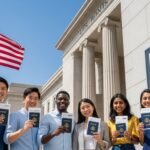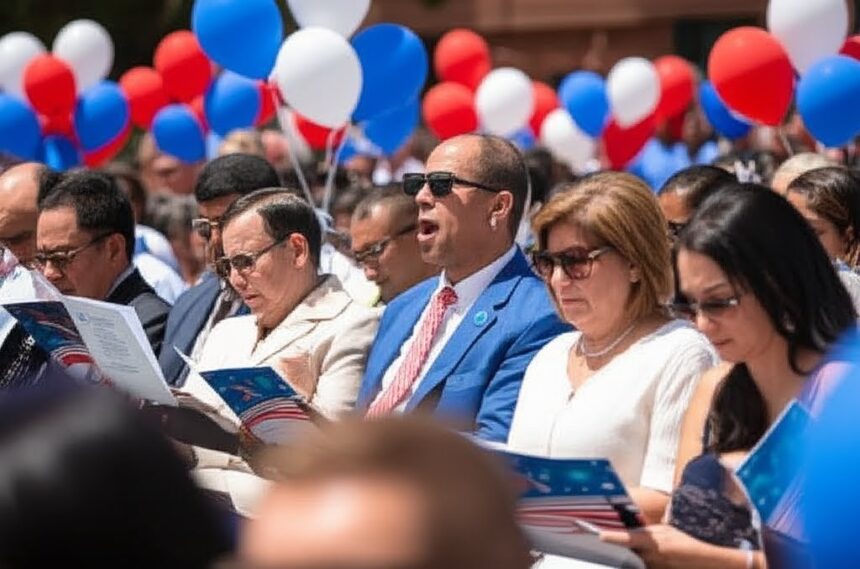Trump Administration Plans Major Overhaul to H-1B Visa and Citizenship Test USA 2025
The Trump administration is preparing significant changes to the U.S. visa system for skilled foreign workers, a move that could reshape immigration policy and workforce dynamics across the country. According to Joseph Edlow, the newly confirmed director of U.S. Citizenship and Immigration Services (USCIS), reforms are being considered to ensure that the H-1B visa program prioritizes higher-paid workers and better aligns with the economic interests of the United States.
In an exclusive interview with The New York Times, Edlow emphasized the need for reform within the immigration framework. He stated that the current naturalization test—a requirement for immigrants seeking U.S. citizenship—is too easy and fails to reflect the true spirit of American civic knowledge. “It’s very easy to memorize the answers,” Edlow said. “I don’t think we’re really comporting with the spirit of the law.”
H-1B Visa Reform: Focus on Higher Wages and Economic Benefit
The H-1B visa program, which currently allocates 85,000 visas annually through a lottery system, has become a central point of debate between immigration hawks and tech industry leaders. Under the new proposal, priority may be given to companies that offer higher salaries to foreign workers. The goal, according to Edlow, is to ensure that these workers supplement—not replace—the U.S. labor force.
This change could address growing criticism from certain Republican lawmakers and right-wing groups who argue that the H-1B program is exploited by companies to cut labor costs. Recently, Vice President JD Vance criticized firms for laying off American employees while hiring foreign talent through visa programs.
However, many U.S. tech leaders argue that the program is essential due to the shortage of highly skilled domestic workers. They claim that eliminating or weakening the H-1B system would hamper innovation and competitiveness in sectors like software development, AI, and biotech.
Doug Rand, a former official in the Biden administration, expressed concern over this direction. He argued that Congress never gave the Department of Homeland Security authority to prioritize visa approvals based on salary. “The H-1B program is still the main way U.S. companies hire top international graduates,” Rand said.
Tougher Citizenship Test and Immigration Vision
The Trump administration also plans to reintroduce a more rigorous naturalization test, similar to the version briefly used during Trump’s first term. That test included 20 questions, with applicants required to answer at least 12 correctly—unlike the current version, which requires 6 correct answers out of 10.
Edlow confirmed that the agency is moving toward implementing this revised test, saying it would better evaluate a candidate’s knowledge and understanding of American values and history.
While discussing the broader immigration strategy, Edlow added, “I think immigration should be a net positive. We need to prioritize people who contribute to our economy and national interest.”
Despite tougher stances in other areas, Edlow clarified that he does not plan to revive previous measures such as penalizing immigrants who use public benefits when applying for green cards. Still, the administration is likely to maintain a firm approach on asylum and refugee policies, building upon Trump-era frameworks that faced multiple court challenges.
Conclusion
With these proposed changes, the Trump administration is aiming to reshape both employment-based immigration and citizenship policies. If enacted, these reforms could have a lasting impact on how America welcomes skilled foreign talent and defines the path to citizenship.
Read more:- What Documentation is Required for Re‑Entering on an H‑1B Visa?






